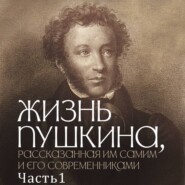По всем вопросам обращайтесь на: info@litportal.ru
(©) 2003-2025.
✖
Management practices of Russian companies. Vol.2
Настройки чтения
Размер шрифта
Высота строк
Поля
Management practices of Russian companies. Vol.2
Collective work
Cases from the collection of the HSE Graduate School of Business
The HSE Graduate School of Business continues to support the initiative of involving the faculty members into the case studies development. The second group of GSB professors has completed the certification program in case writing from The Case Centre, one of the top case clearing houses. The cases included into this volume explore a spectrum of managerial challenges from a multidisciplinary angle.
The collection is intended for professors and business school students, as well as for managers who are interested in understanding the peculiarities of modern Russian business and the specifics of managerial approaches of international companies operating in Russia.
Коллектив авторов
Management practices of Russian companies. Vol.2
Recommended for publication by the Academic Council of the Graduate School of Business, https://elibrary.ru/hrbxqi National Research University Higher School of Economics
Reviewers:
S. Starov, PhD, Professor, Department of Marketing, Graduate School of Management, Saint-Petersburg State University;
V. Evseev, PhD, Executive Director, Association of Managers
Authors:
M. Akim, V. Boltrukevich, E. Buzulukova, L. Cheglakova, A. Demin, M. Dvoryashina, A. Gabrielov, N. Guseva, S. Kiselev, M. Maron, G. Minnigaleeva, Y. Morozov, U. Podverbnykh, N. Pushkareva, S. Smeltsova, I. Tsarkov, T. Vetrova, O. Zelenova
Edited by
S. Kushch, Doctor of Sciences, Professor, Deputy Dean for Research,
HSE Graduate School of Business
© National Research University Higher School of Economics, 2022
* * *
COMPACT CASES DISTRIBUTION BY SUBJECT CATEGORIES
INTRODUCTION
SERGEY KUSHCH
Professor, Deputy Dean for Research, HSE Graduate School of Business
Dear Readers!
You are holding the second volume of cases from the HSE Graduate School of Business, produced as a part of a large-scale project of creating a collection of cases that reveal the specifics of doing business in Russia. We tried to diversify the collection by including cases, which describe the challenges of various areas of modern management theory and practice, such as business process optimization, talent management, digitalization of business models, building the development of social networks, consumer behavior management.
The HSE Graduate School of Business continues the practice of involving professors from different departments in the development of educational cases. The second group of faculty members has already been trained in desinging and writing educational compact cases. Moreover, it is especially encouraging that not only the representatives of the pedagogical staff, but also the university researchers are involved in the development of these cases.
The case method as an educational method is gradually taking up one of the leading roles in teaching business disciplines in Russia. Realizing this trend, we strive not only to develop educational cases, but also to strengthen the competencies of our professors in using cases in the educational process. All the cases included in the collection were tested either on basic educational programs or on leader training programs.
The ten study cases that make up this collection consider challenging situations in management through the prism of different subject areas of science.
Thus, three cases are devoted to the choice of strategic alternatives in present turbulent business environment. The “Aeroflot: how high and where to fly?” case is focused on the issues of strategic management in conjunction with marketing, when one of the most famous Russian brands is faced with the task of developing a new strategy in ever-changing, volatile environment. The “Is the customer always right?” case emphasizes the difficulty of having a personal brand for a recruiter when recruiting for a third-party company. The “Winners and losers, or were the terms of Sberbank and Yandex’s divorce mutually beneficial?” case allows you to dive into the specifics of strategic transactions in detail, considering various methods for estimating the company’s value.
Three other case studies focus on consumer journey research. Moreover, each case of this group is focused on a separate specific industry. Thus, the “Supra: Georgian restaurant in Vladivostok” reveals the specifics of the restaurant business, the “Pushkin Museum’s value: looking for tomorrow” case reflects the specifics of the work of museums, and the “Conquering a younger audience: the case of Gillette in Russia” focuses on the changing market, which has undergone significant changes during the COVID-19 pandemic. Two cases reflect the structural changes in the company when deciding to radically switch its business model. The authors of the “Food Road to Yandex: What does a startup do to become a part of a national IT giant?” case highlighted the typical challenges faced by aspiring entrepreneurs in the process of large businesses acquiring assets all around the world, also emphasizing the specifics of the Russian market. Other aspects of studying the structure of a company are considered in the “Innovation Studio: on the threshold of a new market” case, where the main task of the company is to enter new markets.
One of the cases reveals the specifics of the company’s internal processes. `The “When The Ways we work do not work, what do we do? Raising the bar of `Talent Management’ at AbbVie, Russia, and CIS” case reflects the issues of changing the company’s business strategy driven by the need to revise the talent management system.
All cases included in the collection are designed in accordance with international standards and with the support of experts from The Case Centre. In November 2021, the HSE Graduate School of Business launched its own collection of case studies based on the international The Case Centre platform. The collection is dedicated to the experience of management of Russian companies and transnational corporations doing business in Russia. The cases of this collection will also be registered in the near future and will be available on The Case Center platform.
The collection was developed for professors, students and business schools participants, as well as for managers interested in understanding both the specifics of modern Russian business and the management mechanisms of transnational companies operating in the Russian market.
I wish to express my gratitude to the authors of the cases, partners and company representatives for their contribution to the development of the case method at the Graduate School of Business at the Higher School of Economics. I look forward to our continued cooperation!
Case № 0011-2-1
AEROFLOT: HOW HIGH AND WHERE TO FLY?
N. Guseva, M. Dvoryashina
The case study is developed for the Bachelor’s and Master’s degree students as well as for MBA and EMBA programme participants in the fields of Strategic Management, Strategic Thinking and Management, Corporate Governance, Strategic Marketing, etc. The case study is based on open-source information about the most internationally recognised Russian brand, the Aeroflot Group.
The case provides an opportunity to analyse a set of issues related to the development of a corporate strategy, its transformation into competitive and functional strategies with a particular focus on the development of marketing strategy, as well as the issues related to the implementation of these strategies in a highly turbulent business environment caused by the pandemic of COVID-19.
Andrey Panov, deputy director for strategy and marketing at Aeroflot Group, took his eyes off the quarterly financial report prepared by his colleagues and went to the window. The noise of plane turbines taking off and landing is a constant background noise for the employees of the Sheremetyevo airport office. But now, it was unusually quiet in the company’s office. In the spring of 2020, most of the Aeroflot Group’s air fleet had been grounded amid quarantine restrictions, and the planes that were taking off to the skies had significantly reduced their daily flight hours. With almost no revenue from passenger traffic, unconventional solutions were required.
SUMMER 2020: FIRST RESULTS
The professional airline community is debating market options, depending on the development scenarios and the depth of the pandemic’s negative impact on the industry. The world is undergoing tectonic changes, and once the crisis is over, it will be less about restoring the business to its former form and more about transforming it into something new. Aeroflot’s key results for the first six months of 2020 (Appendix 2) show that the company’s strategy, approved in 2018, needs to be adjusted.
The pandemic has disrupted well-established management systems. Decades-old demand and pricing models for passenger transport services no longer fit the new pandemic realities, causing a drop in airline revenues. As a result of this adverse financial development, a package of strategic solutions will be discussed today at Panov’s meeting with consultants from Bain, Aeroflot’s long-standing partner in developing strategic business development programmes.
CHANGE OF FLAGSHIP?
In Aeroflot Group’s previous strategy, the main member of the group was Aeroflot Airlines, whose fleet comprised medium-haul and long-haul, including intercontinental, aircraft. Aeroflot Airlines positions itself as a premium carrier. As the global trend shows, the premium segment will continue in the new post-COVID environment, but it will not grow as fast as the low-cost segment. The overall market tendencies and especially its business travel segment are changing. Companies are reluctant to buy business class tickets on short flights, the number of business trips have decreased as negotiations move to an online format, and the incomes of potential individual consumers in a pandemic are decreasing.
INCREASE POBEDA SIXFOLD
At the core of the suggestions made by Kate Cook and Trevor Geitz – consultants from Bain, an international strategic consultancy, is a proposal for the low-cost airline Pobeda of the Aeroflot Group to transfer the main routes (medium-haul) currently served by Aeroflot to Pobeda. Currently, the low-cost carrier has only 30 aircraft in its fleet. According to one of the scenarios developed by Bain consultants, Pobeda will carry 55–65 million passengers a year by 2027–2028. This is six times more than it was in the pre-crisis 2019, when the company served 10.3 million people. Accordingly, Pobeda’s aircraft fleet should grow to 170 aircraft.
The consultants’ calculations show that Aeroflot’s projected total annual traffic of 130 million passengers by 2028 corresponds to the level of the entire Russian civil aviation industry for 2019 (128 million passengers). The expansion of Pobeda’s operations in Russia’s domestic market will result in a 30 % reduction in economy class fares. This will certainly not make their competitors happy, Panov thought. Trevor also stressed that the new domestic routes for Pobeda, which have low margins, are likely to be affected by the new trend of reduced business class travel in the short-haul segment. All of this has the potential to exacerbate the industry’s recovery from the pandemic. The risks of increased competition on domestic routes that Pobeda would enter were decided to be worked out in more detail at the next meeting.
Aeroflot, which ranked first among Russian airlines in terms of passenger traffic in 2019 (37.2 million passengers), should focus on routes with high demand for business class (e.g. Paris, London, Geneva, Zurich) and long-haul routes (e.g. Lisbon, Madrid), as suggested by the consultants. Estimates of passenger traffic for Aeroflot should remain at the same level of 35–40 million passengers per year.
HOW TO DIVIDE THE SKY?
Aeroflot’s main competitors in Europe are its SKY Alliance TEAM partners – Air France-KLM,[1 - https://www.klm.com/travel/ru_ru/corporate/airfrance_klm.htm] Europe’s largest airline group, and Lufthansa Group,[2 - https://www.lufthansa.com/pe/en/lufthansa-group-star-alliance-and-partner-airlines] representing the Star Alliance network.
Andrey was familiar with Carsten Spohr, the head of German airline Lufthansa, who became the chairman and chief executive of the company in May 2014 and Benjamin Smith, a Canadian businessman and Air France-KLM executive who took over in 2018. Prior to that, Benjamin was president of Air Canada and its chief operating officer. Both Carsten and Benjamin are recognised professionals in the management of major airlines. All three have met many times at IATA venues (International Air Transport Association).[3 - https://www.iata.org/en/pressroom/pr/28-03-2019-01/]
Collective work
Cases from the collection of the HSE Graduate School of Business
The HSE Graduate School of Business continues to support the initiative of involving the faculty members into the case studies development. The second group of GSB professors has completed the certification program in case writing from The Case Centre, one of the top case clearing houses. The cases included into this volume explore a spectrum of managerial challenges from a multidisciplinary angle.
The collection is intended for professors and business school students, as well as for managers who are interested in understanding the peculiarities of modern Russian business and the specifics of managerial approaches of international companies operating in Russia.
Коллектив авторов
Management practices of Russian companies. Vol.2
Recommended for publication by the Academic Council of the Graduate School of Business, https://elibrary.ru/hrbxqi National Research University Higher School of Economics
Reviewers:
S. Starov, PhD, Professor, Department of Marketing, Graduate School of Management, Saint-Petersburg State University;
V. Evseev, PhD, Executive Director, Association of Managers
Authors:
M. Akim, V. Boltrukevich, E. Buzulukova, L. Cheglakova, A. Demin, M. Dvoryashina, A. Gabrielov, N. Guseva, S. Kiselev, M. Maron, G. Minnigaleeva, Y. Morozov, U. Podverbnykh, N. Pushkareva, S. Smeltsova, I. Tsarkov, T. Vetrova, O. Zelenova
Edited by
S. Kushch, Doctor of Sciences, Professor, Deputy Dean for Research,
HSE Graduate School of Business
© National Research University Higher School of Economics, 2022
* * *
COMPACT CASES DISTRIBUTION BY SUBJECT CATEGORIES
INTRODUCTION
SERGEY KUSHCH
Professor, Deputy Dean for Research, HSE Graduate School of Business
Dear Readers!
You are holding the second volume of cases from the HSE Graduate School of Business, produced as a part of a large-scale project of creating a collection of cases that reveal the specifics of doing business in Russia. We tried to diversify the collection by including cases, which describe the challenges of various areas of modern management theory and practice, such as business process optimization, talent management, digitalization of business models, building the development of social networks, consumer behavior management.
The HSE Graduate School of Business continues the practice of involving professors from different departments in the development of educational cases. The second group of faculty members has already been trained in desinging and writing educational compact cases. Moreover, it is especially encouraging that not only the representatives of the pedagogical staff, but also the university researchers are involved in the development of these cases.
The case method as an educational method is gradually taking up one of the leading roles in teaching business disciplines in Russia. Realizing this trend, we strive not only to develop educational cases, but also to strengthen the competencies of our professors in using cases in the educational process. All the cases included in the collection were tested either on basic educational programs or on leader training programs.
The ten study cases that make up this collection consider challenging situations in management through the prism of different subject areas of science.
Thus, three cases are devoted to the choice of strategic alternatives in present turbulent business environment. The “Aeroflot: how high and where to fly?” case is focused on the issues of strategic management in conjunction with marketing, when one of the most famous Russian brands is faced with the task of developing a new strategy in ever-changing, volatile environment. The “Is the customer always right?” case emphasizes the difficulty of having a personal brand for a recruiter when recruiting for a third-party company. The “Winners and losers, or were the terms of Sberbank and Yandex’s divorce mutually beneficial?” case allows you to dive into the specifics of strategic transactions in detail, considering various methods for estimating the company’s value.
Three other case studies focus on consumer journey research. Moreover, each case of this group is focused on a separate specific industry. Thus, the “Supra: Georgian restaurant in Vladivostok” reveals the specifics of the restaurant business, the “Pushkin Museum’s value: looking for tomorrow” case reflects the specifics of the work of museums, and the “Conquering a younger audience: the case of Gillette in Russia” focuses on the changing market, which has undergone significant changes during the COVID-19 pandemic. Two cases reflect the structural changes in the company when deciding to radically switch its business model. The authors of the “Food Road to Yandex: What does a startup do to become a part of a national IT giant?” case highlighted the typical challenges faced by aspiring entrepreneurs in the process of large businesses acquiring assets all around the world, also emphasizing the specifics of the Russian market. Other aspects of studying the structure of a company are considered in the “Innovation Studio: on the threshold of a new market” case, where the main task of the company is to enter new markets.
One of the cases reveals the specifics of the company’s internal processes. `The “When The Ways we work do not work, what do we do? Raising the bar of `Talent Management’ at AbbVie, Russia, and CIS” case reflects the issues of changing the company’s business strategy driven by the need to revise the talent management system.
All cases included in the collection are designed in accordance with international standards and with the support of experts from The Case Centre. In November 2021, the HSE Graduate School of Business launched its own collection of case studies based on the international The Case Centre platform. The collection is dedicated to the experience of management of Russian companies and transnational corporations doing business in Russia. The cases of this collection will also be registered in the near future and will be available on The Case Center platform.
The collection was developed for professors, students and business schools participants, as well as for managers interested in understanding both the specifics of modern Russian business and the management mechanisms of transnational companies operating in the Russian market.
I wish to express my gratitude to the authors of the cases, partners and company representatives for their contribution to the development of the case method at the Graduate School of Business at the Higher School of Economics. I look forward to our continued cooperation!
Case № 0011-2-1
AEROFLOT: HOW HIGH AND WHERE TO FLY?
N. Guseva, M. Dvoryashina
The case study is developed for the Bachelor’s and Master’s degree students as well as for MBA and EMBA programme participants in the fields of Strategic Management, Strategic Thinking and Management, Corporate Governance, Strategic Marketing, etc. The case study is based on open-source information about the most internationally recognised Russian brand, the Aeroflot Group.
The case provides an opportunity to analyse a set of issues related to the development of a corporate strategy, its transformation into competitive and functional strategies with a particular focus on the development of marketing strategy, as well as the issues related to the implementation of these strategies in a highly turbulent business environment caused by the pandemic of COVID-19.
Andrey Panov, deputy director for strategy and marketing at Aeroflot Group, took his eyes off the quarterly financial report prepared by his colleagues and went to the window. The noise of plane turbines taking off and landing is a constant background noise for the employees of the Sheremetyevo airport office. But now, it was unusually quiet in the company’s office. In the spring of 2020, most of the Aeroflot Group’s air fleet had been grounded amid quarantine restrictions, and the planes that were taking off to the skies had significantly reduced their daily flight hours. With almost no revenue from passenger traffic, unconventional solutions were required.
SUMMER 2020: FIRST RESULTS
The professional airline community is debating market options, depending on the development scenarios and the depth of the pandemic’s negative impact on the industry. The world is undergoing tectonic changes, and once the crisis is over, it will be less about restoring the business to its former form and more about transforming it into something new. Aeroflot’s key results for the first six months of 2020 (Appendix 2) show that the company’s strategy, approved in 2018, needs to be adjusted.
The pandemic has disrupted well-established management systems. Decades-old demand and pricing models for passenger transport services no longer fit the new pandemic realities, causing a drop in airline revenues. As a result of this adverse financial development, a package of strategic solutions will be discussed today at Panov’s meeting with consultants from Bain, Aeroflot’s long-standing partner in developing strategic business development programmes.
CHANGE OF FLAGSHIP?
In Aeroflot Group’s previous strategy, the main member of the group was Aeroflot Airlines, whose fleet comprised medium-haul and long-haul, including intercontinental, aircraft. Aeroflot Airlines positions itself as a premium carrier. As the global trend shows, the premium segment will continue in the new post-COVID environment, but it will not grow as fast as the low-cost segment. The overall market tendencies and especially its business travel segment are changing. Companies are reluctant to buy business class tickets on short flights, the number of business trips have decreased as negotiations move to an online format, and the incomes of potential individual consumers in a pandemic are decreasing.
INCREASE POBEDA SIXFOLD
At the core of the suggestions made by Kate Cook and Trevor Geitz – consultants from Bain, an international strategic consultancy, is a proposal for the low-cost airline Pobeda of the Aeroflot Group to transfer the main routes (medium-haul) currently served by Aeroflot to Pobeda. Currently, the low-cost carrier has only 30 aircraft in its fleet. According to one of the scenarios developed by Bain consultants, Pobeda will carry 55–65 million passengers a year by 2027–2028. This is six times more than it was in the pre-crisis 2019, when the company served 10.3 million people. Accordingly, Pobeda’s aircraft fleet should grow to 170 aircraft.
The consultants’ calculations show that Aeroflot’s projected total annual traffic of 130 million passengers by 2028 corresponds to the level of the entire Russian civil aviation industry for 2019 (128 million passengers). The expansion of Pobeda’s operations in Russia’s domestic market will result in a 30 % reduction in economy class fares. This will certainly not make their competitors happy, Panov thought. Trevor also stressed that the new domestic routes for Pobeda, which have low margins, are likely to be affected by the new trend of reduced business class travel in the short-haul segment. All of this has the potential to exacerbate the industry’s recovery from the pandemic. The risks of increased competition on domestic routes that Pobeda would enter were decided to be worked out in more detail at the next meeting.
Aeroflot, which ranked first among Russian airlines in terms of passenger traffic in 2019 (37.2 million passengers), should focus on routes with high demand for business class (e.g. Paris, London, Geneva, Zurich) and long-haul routes (e.g. Lisbon, Madrid), as suggested by the consultants. Estimates of passenger traffic for Aeroflot should remain at the same level of 35–40 million passengers per year.
HOW TO DIVIDE THE SKY?
Aeroflot’s main competitors in Europe are its SKY Alliance TEAM partners – Air France-KLM,[1 - https://www.klm.com/travel/ru_ru/corporate/airfrance_klm.htm] Europe’s largest airline group, and Lufthansa Group,[2 - https://www.lufthansa.com/pe/en/lufthansa-group-star-alliance-and-partner-airlines] representing the Star Alliance network.
Andrey was familiar with Carsten Spohr, the head of German airline Lufthansa, who became the chairman and chief executive of the company in May 2014 and Benjamin Smith, a Canadian businessman and Air France-KLM executive who took over in 2018. Prior to that, Benjamin was president of Air Canada and its chief operating officer. Both Carsten and Benjamin are recognised professionals in the management of major airlines. All three have met many times at IATA venues (International Air Transport Association).[3 - https://www.iata.org/en/pressroom/pr/28-03-2019-01/]

















